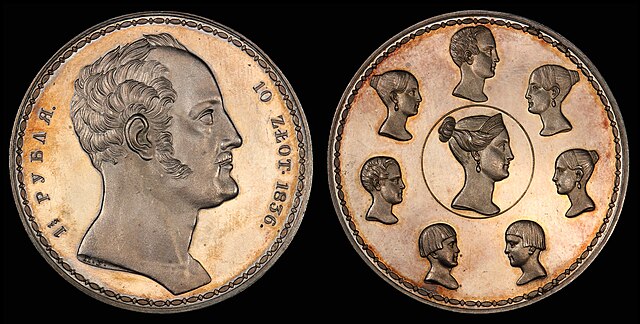Cantonists were underage sons of conscripts in the Russian Empire. From 1721 on they were educated in special "cantonist schools" for future military service. The cantonist schools and the cantonist system were eventually abolished in 1857, following public and international criticism and the Russian defeat in the Crimean War.
Cantonists
Herzel Yankel Tsam, one of only eight recorded exceptions in the Russian army in the 19th century of Jewish cantonists who rose to the rank of officer without first converting to Christianity. Drafted as a 17-year-old cantonist, he became an officer in 1873. He was not allowed any promotions beyond captain until his retirement after 41 years of service, when he was given rank and pension of a colonel. In spite of pressures, he never converted.
Nicholas I was Emperor of Russia, King of Congress Poland, and Grand Duke of Finland. He was the third son of Paul I and younger brother of his predecessor, Alexander I. Nicholas's reign began with the failed Decembrist revolt. He is mainly remembered in history as a reactionary whose controversial reign was marked by geographical expansion, centralisation of administrative policies, and repression of dissent. Nicholas had a happy marriage that produced a large family; all of their seven children survived childhood.
Portrait by Franz Krüger, c. 1832
Portrait of Grand Duke Nicholas Pavlovich (c. 1808), by anonymous painter after Johann Friedrich August Tischbein, located in the Russian Museum, Saint Petersburg
Nicholas I "Family Ruble" (1836) depicting the Tsar on the obverse and his family on the reverse: Tsarina Alexandra Feodorovna (center) surrounded by Alexander II as Tsarevich, Maria, Olga, Nicholas, Michael, Konstantin, and Alexandra
Nicholas I with Alexander II in Bogdan Willewalde's studio in Saint Petersburg in 1854, oil on canvas, State Russian Museum






